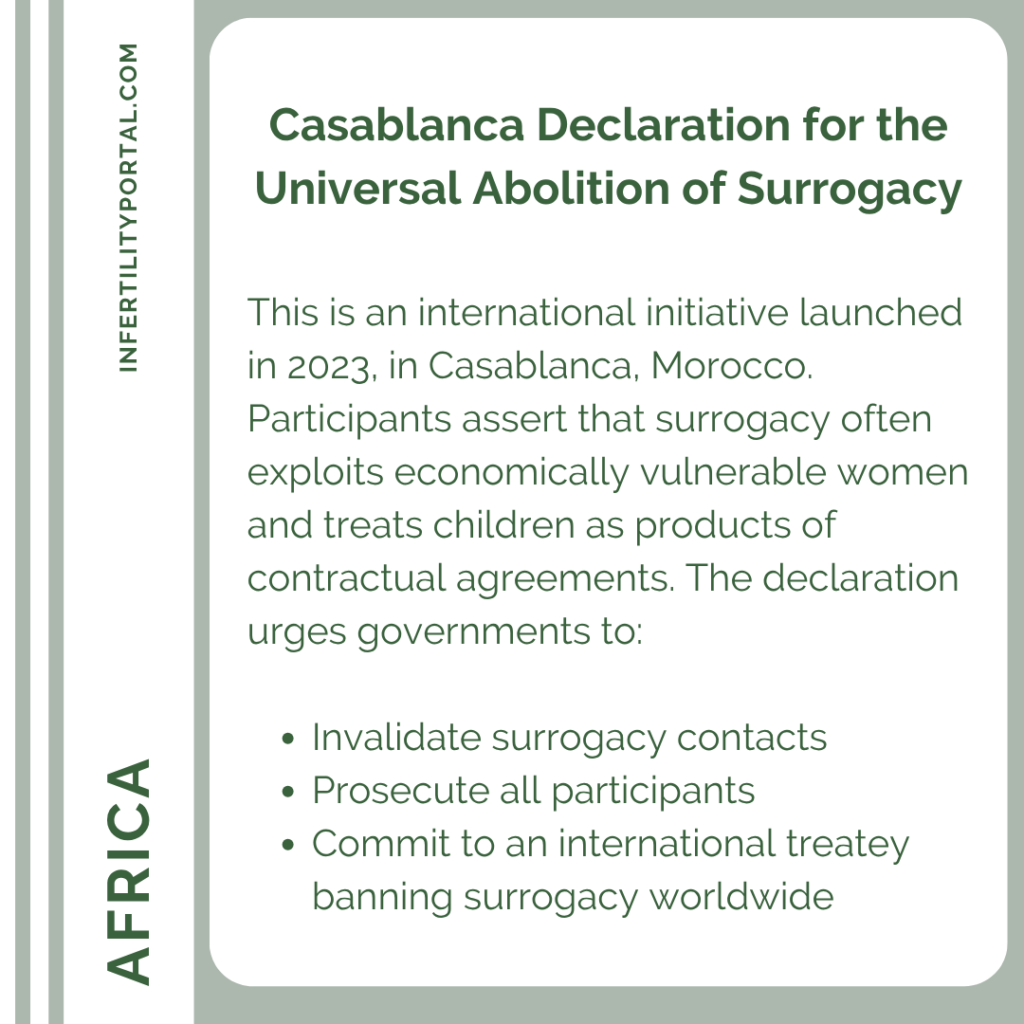The Casablanca Declaration: A Global Call to Abolish Surrogacy
On March 3, 2023, in Casablanca, Morocco, a powerful global initiative was launched: The Casablanca Declaration for the Universal Abolition of Surrogacy. Signed by over 100 professionals from 75 countries—including legal experts, medical doctors, psychologists, and ethicists — this declaration calls for a worldwide ban on all forms of surrogacy, both commercial and altruistic.
What Is the Casablanca Declaration?
The Casablanca Declaration is more than a statement. It is a global movement. Its core message is clear: surrogacy violates human dignity and should be banned everywhere, in every form.
The declaration calls on governments around the world to:
-
Invalidate all surrogacy contracts
-
Prosecute intermediaries who arrange or promote surrogacy
-
Pursue legal action against individuals who engage in surrogacy, whether domestically or abroad
-
Support and adopt an international treaty to permanently ban surrogacy worldwide
Ethical Concerns Behind the Movement
The declaration argues that surrogacy turns both women and children into commodities. It states that:
-
Women, particularly those who are economically vulnerable, are exploited for their reproductive capacity.
-
Children are treated as products of contractual transactions, not human beings with inherent rights.
-
Even so-called altruistic surrogacy still places a woman’s body under contract and control, raising deep concerns about autonomy and consent.
The declaration insists that surrogacy is not just a national issue, but a transnational problem. It requires international coordination and legal alignment to effectively prevent exploitation.
A Personal Face of the Movement: Olivia Maurel
One of the most prominent voices supporting the declaration is Olivia Maurel, a French-American woman born through surrogacy. She serves as the spokesperson for the initiative.
Olivia Maurel was born through traditional surrogacy in the United States and raised in France. She discovered the truth about her birth at age 17. A revelation that led to a complete breakdown in communication with her mother, who has not spoken to her since. Olivia’s story highlights the importance of openness, honesty, and emotional support in any family values that many surrogacy journeys today prioritize. Her experience serves as a reminder that the challenges she endured may have been less about the method of her birth and more about her difficult relationship with her mother and the way her origins were kept hidden.
Global Advocacy and Political Support
Since its launch, the Casablanca Declaration has gained traction across continents. In April 2024, a major international conference in Rome, co-hosted by the Holy See and the Caritas in Veritate Foundation, brought together lawmakers, academics, and religious leaders to support the declaration’s goals.
Later, in June 2024, the declaration was presented to the United Nations Human Rights Council in Geneva during its 56th session. There, it was positioned as a global human rights issue requiring international attention and collaboration.
Looking Ahead: Lima 2025
The movement is still gaining momentum. The third Casablanca Conference is set to take place in Lima, Peru, on June 4–5, 2025. This event will bring together experts and policymakers from across the globe to further the dialogue around surrogacy, strengthen alliances, and work toward a coordinated legal response.
Conclusion: A Growing Global Push for Abolition
The Casablanca Declaration signals a major shift in the global conversation around surrogacy. While some countries are expanding access to assisted reproduction, others, guided by ethical, legal, and human rights concerns, are pushing for total abolition.
The declaration has succeeded in one major goal: placing surrogacy at the center of global debate. It challenges lawmakers and the public to re-examine how reproductive technologies intersect with dignity, autonomy, exploitation, and the rights of children.
As the 2025 Lima conference approaches, the world will be watching to see whether this movement can transform declarations into binding international law.


